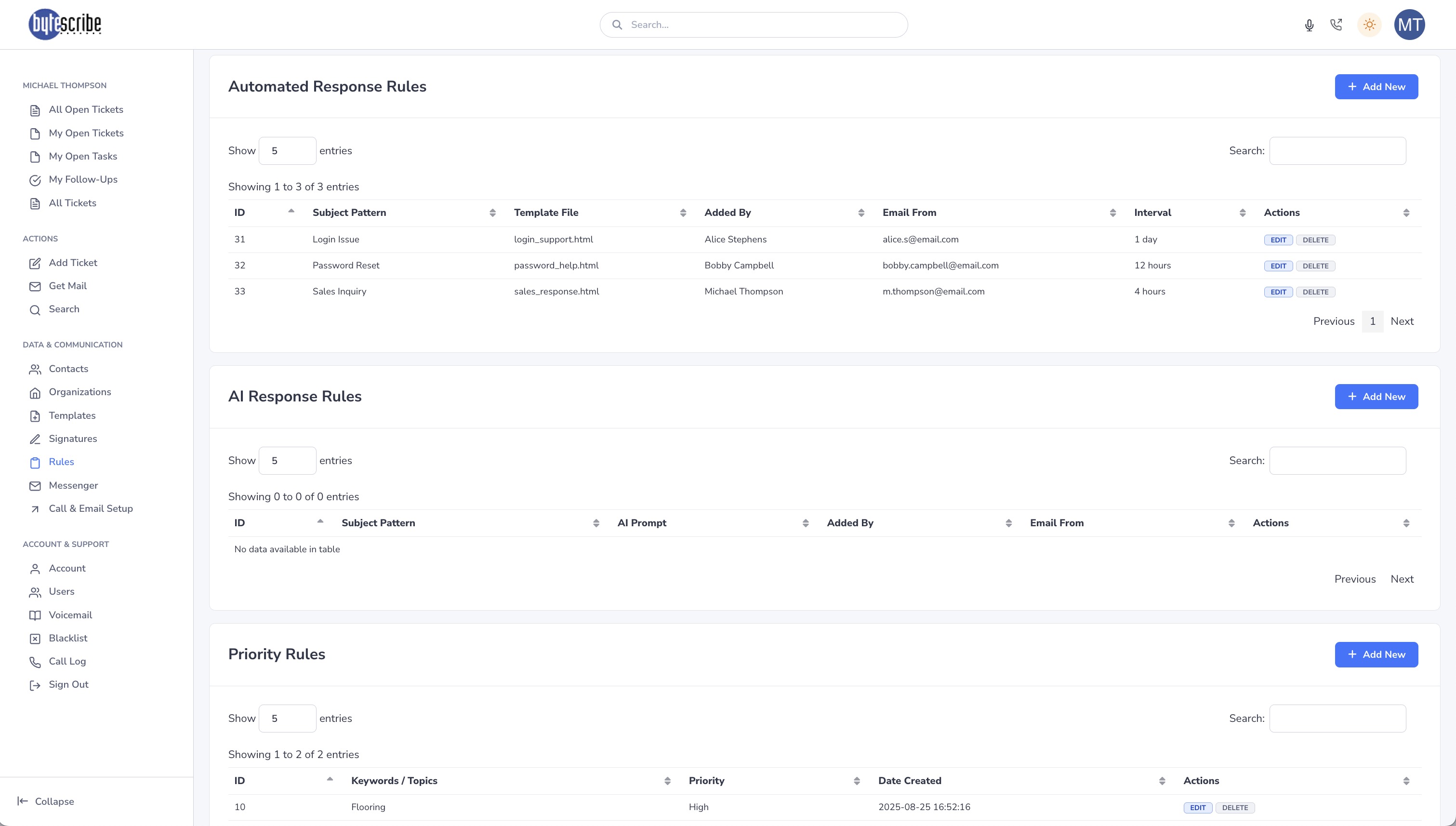Automation and Workflows
The Routing Rules section in Desque allows administrators to automate how tickets are categorized, prioritized, and responded to. By defining specific rules, you can ensure that common requests are handled efficiently, repetitive tasks are automated, and critical issues are escalated to the right people. Routing rules help maintain consistency across your support operations and improve response times by reducing the amount of manual work required from agents.
Automated Response Rules
Automated Response Rules are designed to provide customers with immediate replies when certain conditions are met. These rules typically use a subject pattern or keyword in the customer’s message to trigger a predefined template file, such as a login assistance guide or password reset instructions. Each rule includes details such as the assigned template, the email address used for the response, the agent who created it, and the interval at which it can be triggered. This setup ensures that common issues are acknowledged quickly, even outside of business hours, while freeing agents to focus on more complex cases.
AI Response Rules
AI Response Rules leverage the built-in AI tools in Desque to generate dynamic replies based on subject patterns or prompts. Unlike static templates, AI-powered responses can adapt to the context of the customer’s request, making them more flexible and conversational. Administrators can create AI prompts that guide the system in drafting replies, which agents can then edit or approve before sending. These rules are especially effective for handling a wide range of inquiries that don’t always follow a predictable format, ensuring that customers receive timely and relevant responses.
Priority Rules
Priority Rules enable you to automatically assign a level of importance to tickets based on keywords or topics. For example, messages containing certain terms like “outage” or “billing issue” can automatically be marked as high priority, ensuring they are addressed before lower-urgency requests. Each rule includes the topic or keyword, the assigned priority level, and the date the rule was created. By leveraging Priority Rules, your team can focus their attention where it matters most, reducing the risk of critical requests being delayed or overlooked.
Managing and Maintaining Rules
Routing Rules can be edited, updated, or deleted at any time to adapt to changes in your support workflow. Administrators should periodically review rules to confirm they remain relevant and effective. For example, new product launches may require updated automated replies, or changing business priorities may lead to adjustments in keyword-based routing. Keeping rules up to date ensures that your support system continues to operate smoothly and that customers consistently receive accurate and timely responses. By maintaining clear and well-structured rules, you can build a more proactive and efficient support environment.
Need more help?
